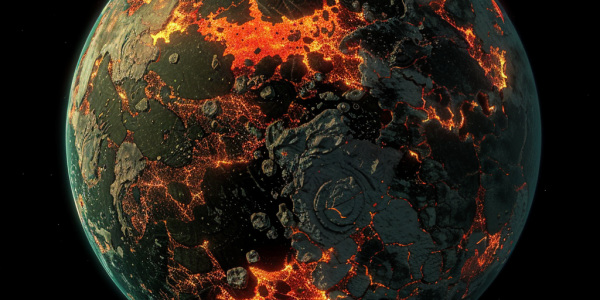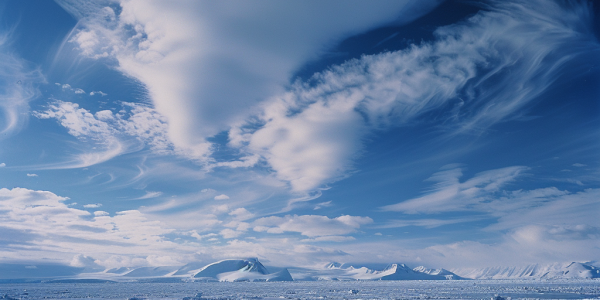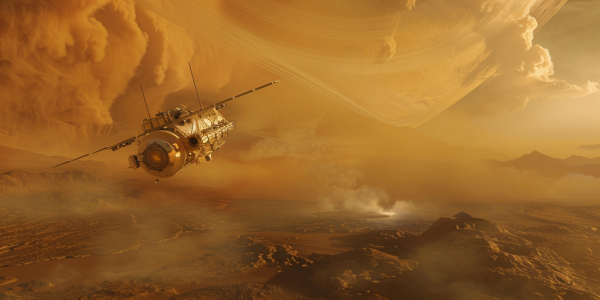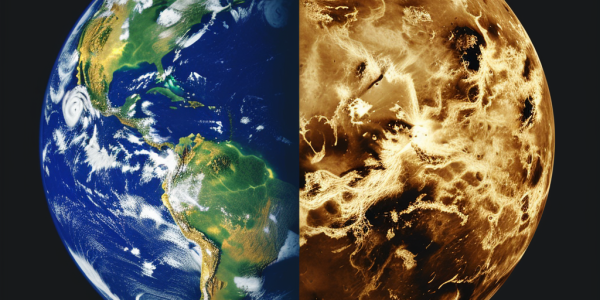Atmosphere Discovered on Rocky Exoplanet 55 Cancri e
Recent breakthroughs in astronomy have unveiled a fascinating discovery – an atmosphere surrounding a rocky exoplanet, 55 Cancri e, shedding light on the intricate interplay between its molten surface and evolving atmosphere. Utilizing the James Webb Space Telescope, scientists identified a thick atmosphere possibly containing carbon monoxide and carbon dioxide, offering valuable insights into the planet’s composition and behavior. This groundbreaking research expands our understanding of exoplanets and planetary atmospheres, paving the way for further exploration of the vast universe beyond our solar system.
Ozone Layer Faces Renewed Crisis Despite Progress
The ozone layer, crucial for protecting life on Earth from harmful UV rays, is once again facing a crisis due to human-made chemicals. Despite progress in reducing ozone-depleting substances, a persistent hole over Antarctica poses a threat to plant and animal life. The international community must remain vigilant in curbing harmful emissions to safeguard our planet.
Mysterious Disappearance of Water on Venus Linked to Methanaldehyde Ion
Recent research suggests that the molecule HCO+ may be responsible for the disappearance of water on Venus, transforming the planet into a desert wasteland. Scientists from the University of Colorado at Boulder propose that HCO+ evaporating into space is depleting Venus’ water reserves, leading to its arid conditions. Future missions like VERITAS and DAVINCI are needed to study these molecules further and understand the mechanisms behind Venus’ water loss.
Rare Northern Lights Display Across UK Captivates Sky Watchers
The Northern Lights, also known as aurora borealis, have been dazzling sky watchers across the UK with their vivid colors. A strong geomagnetic storm allowed for optimal viewing conditions, sparking excitement among onlookers who shared stunning pictures from various locations. The spectacle is a result of charged particles from the sun interacting with gases in the Earth’s atmosphere, producing vibrant colors ranging from green to pink and scarlet.
Unraveling the Mystery of Earth and Venus’ Water Abundance Discrepancy
Recent research suggests that ‘HCO+ Dissociative Recombination’ may explain why Earth is water-rich while Venus is bone dry. This non-thermal process could have influenced the distribution of water molecules on Venus, leading to its arid state. Understanding this mechanism offers valuable insights into planetary evolution and the diverse processes shaping our solar system.
Geophysical Research Letters Highlights Study on Climate Sensitivity in CMIP6 Models
Geophysical Research Letters celebrates its 50th anniversary with a study on climate sensitivity in CMIP6 models, shedding light on the complexities of climate models and the challenges in translating model projections into actionable policies. Researchers analyze historical emissions and future scenarios to determine Earth’s response to greenhouse gas emissions, essential for informed decision-making on climate change mitigation.
Advancing Exoplanet Geology Through Observations
Explore the evolving field of exoplanet geology and the exciting possibilities that lie ahead in exoplanetary research. Learn how advancements in observational technologies are reshaping our understanding of planetary systems and opening up the potential to investigate the geology of rocky exoplanets. Discover the implications of studying atmospheric conditions on rocky exoplanets and the challenges researchers face in understanding their geological processes. Find out how next-generation telescopes like the James Webb Space Telescope (JWST) are providing valuable data for researchers to refine our comprehension of rocky exoplanet geology and evolution.
New Research Shows Weather Prediction Models Can Forecast Satellite Movements
New research from the University of Helsinki reveals that modern weather prediction models can accurately predict satellite movements based on Earth’s energy emissions and reflections. This breakthrough finding enhances satellite tracking and control, improving the reliability of satellite data for climate studies and Earth monitoring tasks.
Venus Experiencing Loss of Gases in Upper Atmosphere, Study Finds
A new study has revealed that Venus is experiencing a loss of gases such as oxygen and carbon from its upper atmosphere. The research, published in the Nature Astronomy journal, highlights the findings from the Mercury-bound BepiColombo spacecraft’s second fly-by of Venus in August 2021. These recent revelations add to the existing knowledge about Venus, raising questions about the potential implications for Earth and prompting further exploration of Venus to better understand these phenomena.
Debating the Possibility of Life in Venus’ Clouds
Could life exist within Venus’ voluminous clouds? New research suggests that it might be possible. Despite the harsh conditions on Venus’ surface, scientists are debating the possibility of life in the planet’s clouds. Recent research has raised questions about the potential for life in its atmosphere, with the detection of phosphine in Venus’ atmosphere sparking discussions about the presence of life. A new paper explores the possibility of microscopic life existing and reproducing in water droplets in Venus’ clouds, challenging our perceptions of where life could exist beyond Earth.










